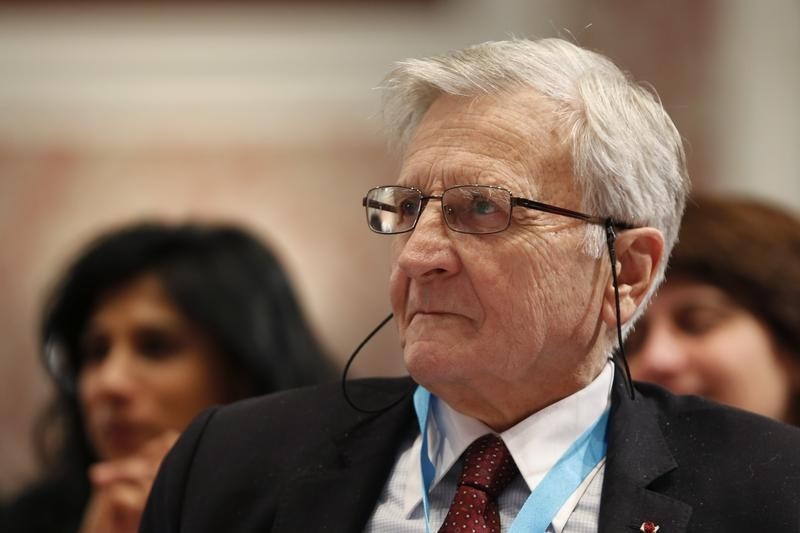By Padraic Halpin
DUBLIN (Reuters) - Ireland was in such a perilous position in 2010 that it had no choice but to seek an international aid programme, former European Central Bank head Jean-Claude Trichet said on Thursday, defending his role in the Irish crisis.
At a much-anticipated event during a parliamentary inquiry into Ireland's banking crisis, Trichet was questioned on his actions during the near collapse of the country's banks and about the pressure Frankfurt put on Ireland before its bailout.
"The situation, which was extremely grave, was due to the underlying weakness of the Irish economy and financial system," Trichet said in a speech before being asked by a member of the inquiry if he "put a gun to the head" of the Irish government.
"It left the government with no alternative than to ask for support," Trichet said.
Trichet's appearance followed the ECB's release last year of correspondence between the then-ECB President and Ireland's former finance minister, Brian Lenihan, when Trichet threatened to end emergency bank funding.
The level of funding at that time was without precedent anywhere in the world: 100 percent of Irish annual economic output. "We helped Ireland more than any other central bank helped any other country," Trichet said on Thursday.
Trichet defended the ECB's reluctance to allow losses to be forced on senior bank bondholders - another controversial subject in Ireland - saying it remained his view that various factors made that extremely difficult for Ireland in 2010.
However, he said that while the ECB gave its advice, "the decisions were taken, and that goes without saying, by the Irish authorities."
He said the next Irish government was right to decide against forcing losses on the remaining senior bondholders at failed banks a year later when it approached the ECB about doing so.
Referring to the government's 2008 blanket guarantee on all bank liabilities - a key focus of the banking inquiry - Trichet said he understood the decision but that the ECB was not consulted and that it came as a "thunderbolt" for many countries.
The inquiry heard evidence this week that the Irish Central Bank was aware that one lender was a day away from defaulting on the eve of the guarantee. Trichet said he did not recall being made aware of this, saying it was not the responsibility of the ECB in 2008 to supervise euro zone banks.

One member of the inquiry said it was unbelievable that the ECB president was kept in the dark.